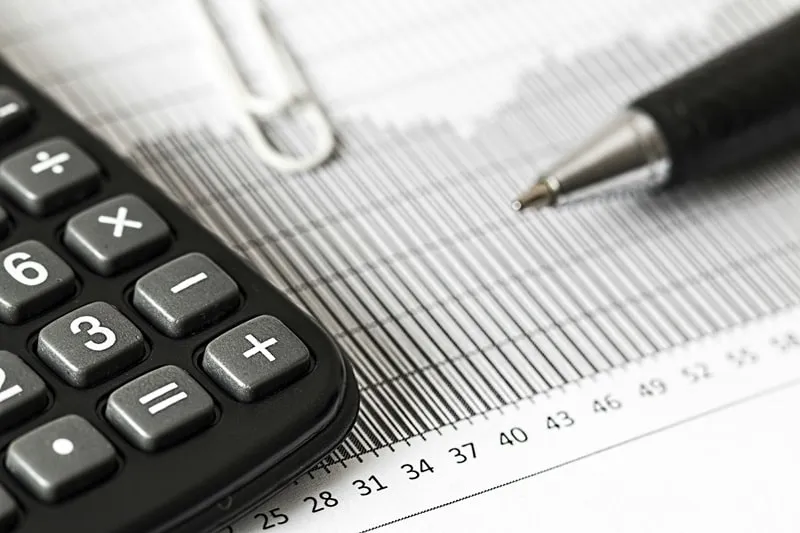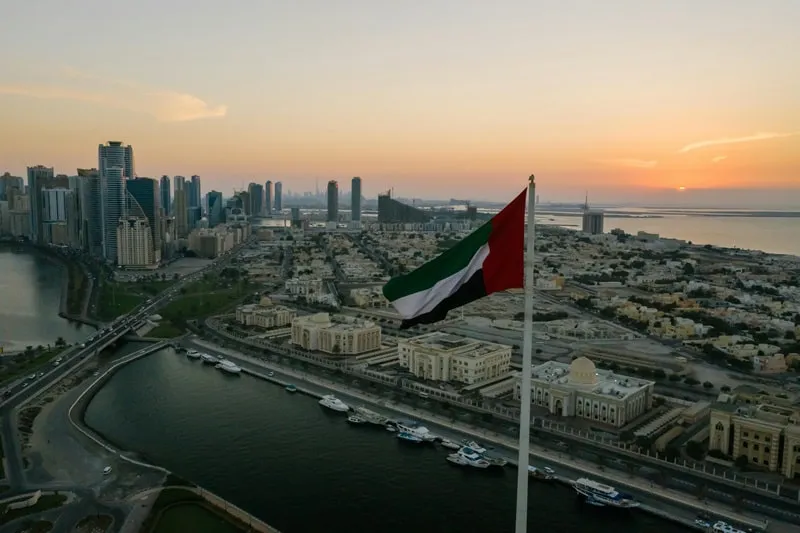

07.08.2025
459
What's this about? Taxes in Dubai are among the lowest in the world. In some cases, individuals and businesses don't pay them at all, while in others, they pay no more than 9% on profits, which is significantly lower than rates in Russia or Western countries.
What to pay attention to? However, such conditions are available only when following certain rules. For example, companies must operate in free zones or show low turnover in accounts. There are also certain nuances with individual taxes.
The taxation system in Dubai attracts both entrepreneurs from around the world and private individuals. There, as in other parts of the UAE, different tax laws apply to individuals and organizations. Let's examine Dubai's tax system in detail.
Tax for residents. Private individuals who are residents of the emirate do not pay taxes. Neither salary, nor investment income, nor capital gains are taxable.

Tax for non-residents and foreign citizens. They also do not pay income tax in Dubai, but you need to understand the tax laws of your country, as you may be required to pay taxes there.
Social security payments. Only citizens of the United Arab Emirates make contributions to social funds. Expatriates are exempt from participating in the country's social security system.
The basis for establishing and implementing the corporate tax system in the Arab Emirates is defined by the corporate tax law, which comes into effect during financial years starting from June 2023.
The tax rate is 9% with a taxable base threshold of 375,000 dirhams.
Items on which corporate tax is not charged or has a reduced rate:
Corporate tax payment or refund must be made within nine months.
Losses can be carried forward to offset profits, accounting documents and books must be kept for 7 years.

Corporate tax deductions can be claimed for:
Corporate tax deductions are not allowed for:
Most organizations in Dubai do not pay corporate tax. The exceptions are foreign banks and oil companies. However, VAT must be paid by all companies whose turnover exceeds a certain threshold.
VAT was introduced in the UAE in 2018, with a rate of 5%. If a business has a turnover of more than 375,000 dirhams, it must register to pay VAT. For companies with turnover between 187,500–375,000 dirhams, registration is not mandatory.
Let's look at what other taxes are required to pay in Dubai.
When ownership of any property changes, both parties (seller and buyer) must pay the state a certain percentage of the property's value. The amount depends on where the property is located. In Dubai, for example, the tax is 4%. The total amount is usually split between the transaction parties, with each paying their 2%.
Additionally, the buyer must pay a one-time registration fee:
After completing the transaction, the new owner pays 250 dirhams to receive the certificate of ownership.
After this, they must regularly pay an annual property maintenance fee, similar to apartment fees in Russia. This money is used for the maintenance of the building and public areas, landscaping, and maintaining the surrounding territory.
The amount of city tax in Dubai is set by the construction company, which strives to create the most comfortable conditions for its residents to maintain demand and high ratings.
When renting a home, the tenant pays a monthly municipal tax of 5%. For commercial premises, the tax rate is 10%.
Purchasing a vehicle requires paying a registration fee at the time of purchase. For new cars, the seller pays the fee, while for used cars, the buyer pays.
The amount varies depending on the specific emirate. The tax in Dubai is 420 dirhams ($14). Car ownership in the United Arab Emirates is only permitted for those with valid driving licenses. To obtain one, you must complete courses costing approximately $2,000.

Previously, expatriates were allowed to take theory and practical exams externally and undergo an ophthalmologist's examination. In 2023, this programme was suspended indefinitely.
Tourists can drive with their home country licenses, but residents who haven't obtained a UAE document cannot even rent a vehicle.
If you plan to purchase a car in the United Arab Emirates, you must obtain insurance, paying about $1,000 for the policy.
While tourists have certain advantages regarding transport, they must remember that they have their own tax payments. The tourist tax amount varies by region.
Dubai receives the most tourists in the Emirates. The tourist tax is calculated based on hotel star rating and the number of bedrooms in the room. A tourist must pay:
The tourist tax per night spent in the room ranges from 7 to 20 dirhams. Payment is required only for the first 30 days of hotel stay.
UAE tax residency status is confirmed by the Tax Domicile Certificate.
The rules for obtaining this status changed in 2023: previously, like many other countries, you needed to be present in the country for 183 days per year, but today 90 days of stay in the UAE is sufficient.
This means you can obtain the Certificate by living in Dubai for just 90 days per year. But besides this, you need to also prove that you have personal and financial interests in the country (bank accounts, periodically received income, and so forth).

Furthermore, to obtain the Certificate, you must have an Emirates ID. That is, if you came to the country for the winter as a tourist, you won't get the Certificate since you have no connection to the UAE.
Obtaining tax resident status alone doesn't exempt you from paying taxes in other countries. For example, if you live in Russia for more than 183 days, you're still obligated to pay taxes there.
However, the Certificate can help reduce the tax amount in the country where you have income if the United Arab Emirates and that country have signed a Double Taxation Prevention Agreement (this doesn't apply to Russia).
This is especially important if you don't live in any country for more than 183 days and therefore can't confirm your tax residency anywhere. In such cases (when receiving bond coupons, dividends, etc.), you wouldn't be able to get the benefits provided by the Agreement.
90 days is one of the shortest periods in the world. It's only shorter in Cyprus (among popular countries) — there you can become a tax resident after living on the island for just 60 days.
The Tax Domicile Certificate is also worth obtaining to simplify the process of confirming income sources in other countries.
For example, you've lived in the UAE for 5 years, receiving salary and dividends from your company in the country during this time. As an individual, by law, you don't pay or declare residence taxes in Dubai.
After 5 years, you want to buy property in Italy, and the bank of that country makes an inquiry about the source of your income.
Usually, tax declarations are used as the source. In the Russian Federation, this would be the simplified tax system declaration, 3-NDFL (personal income tax) declaration, 2-NDFL certificate, and so on.
But in Dubai, as an individual, you haven't submitted any declarations, so you have nothing. And in such a situation, the Tax Domicile Certificate will come in handy.
With this document, you will need to provide the bank with the following:
If you don't have the Certificate, you'll have to undergo bank verification. This can be difficult because the bank might assume you should have been paying taxes in another country but didn't, in which case it would mean the bank is accepting dirty money.

Considering that clients with Russian passports are being very strictly checked by European banks due to sanctions, it's better to obtain a Tax Domicile Certificate of the United Arab Emirates.
This Certificate is obtained remotely from the Federal Tax Authority of the Emirates. Applications must be submitted via the tax service website.
To obtain a Dubai Tax Domicile Certificate, you must submit the following documents online:
The Certificate is valid for 1 year, after which it can be issued again.
Legal entities in Dubai also have the right to obtain such a Certificate if they have existed for more than 12 months (or the company can be purchased).
In the region, as elsewhere in the United Arab Emirates, there are special programmes that offer tax benefits in Dubai in 2024, especially for businesspeople and foreign investors. Free trade zones play a major role in this, offering privileges such as tax benefits for periods of 15–50 years with possible extension, exemption from import duties on products imported into the zones, and no restrictions on foreign ownership.
Special zones apply different tax and regulatory procedures designed to encourage foreign investors. The advantage of the free trade zones is their accessibility to foreign entrepreneurs and full or partial tax exemption. In Dubai, there are no direct taxes at all, and indirect taxes are limited, which attracts people to the city for both living and doing business.

The local taxation system has certain features that determine popular tax regimes and ways to optimize them. The main characteristic in the system is the complete absence of certain types of taxes that are mandatory in other countries.
Additionally, the government of each of the seven emirates can independently choose tax policy in their territory. This creates special opportunities for tax planning and optimization.
Thanks to such tax legislation, Dubai is a major global business and financial centre that attracts large volumes of foreign investment.
The Emirate of Dubai is the UAE's largest financial centre, with thousands of foreign company branches operating there. Dubai's tax system is attractive for business, with particular importance placed on the tax-free environment and special conditions in its free economic zones.
International analytics centres have given Dubai a high economic freedom index, which demonstrates its attractiveness to entrepreneurs against the backdrop of the country’s overall tax system.
Besides VAT, Dubai has excise duties on certain groups of goods — alcoholic products, energy drinks, and tobacco products. These taxes are a source of additional funds for government projects and are also directed at limiting the use of harmful products.
Besides special consumption tax and VAT, Dubai has other indirect taxes. These are road tolls and payment for government services. These payments are not taxes in the conventional sense, but they similarly affect the population and businesses financially.
There is no tax for the wealthy in the United Arab Emirates. Fees must only be paid when selling businesses that pay income tax.
Living in Dubai or opening your own business has significant advantages in terms of taxation. You need to understand the tax system and your personal obligations as an individual or entrepreneur to optimize your tax position and comply with all legislation.